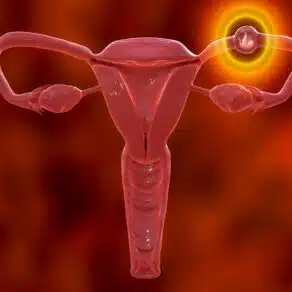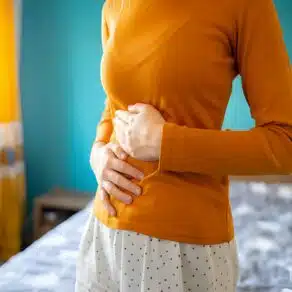Introduction: Endometriosis, where uterine-like tissue grows outside the uterus, impacts many reproductive-age women. For women with endometriosis getting pregnant who desire pregnancy, navigating the journey to conception can present unique challenges. In this article, we explore the relationship between endometriosis and pregnancy, discussing the obstacles, strategies, and considerations involved.
1. Understanding Endometriosis and Fertility:
- Impact on Fertility: Endometriosis can affect fertility by causing inflammation, scarring, and pelvic anatomy distortion, potentially interfering with ovulation, fertilization, and implantation.
- Varied Effects: While some women with endometriosis experience difficulty conceiving, others may conceive naturally or with medical assistance.
2. Strategies for Conception:
- Timed Intercourse: Tracking ovulation and engaging in timed intercourse during the fertile window can optimize conception chances for women with endometriosis.
- Fertility Treatments: Assisted reproductive technologies (ART), like in vitro fertilization (IVF) or intrauterine insemination (IUI), may be recommended for couples with endometriosis-related infertility.
3. Pregnancy and Endometriosis:
- Impact on Symptoms: Pregnancy can temporarily relieve endometriosis symptoms for some women due to hormonal changes, easing pelvic pain and menstrual irregularities.
- Potential Challenges: Despite symptom improvement during pregnancy, endometriosis-related complications such as pelvic adhesions or ovarian cysts may still pose risks and require monitoring.
4. Managing endometriosis getting pregnant During Pregnancy:
- Medication Considerations: Certain medications used to manage endometriosis symptoms, like NSAIDs or hormonal therapies, may not be advised during pregnancy and may require adjustment or discontinuation.
- Ongoing Monitoring: Regular prenatal care and close healthcare provider monitoring are essential to ensure the well-being of both mother and baby.
5. Postpartum Considerations:
- Symptoms of endometriosis may resurge after childbirth for some women, especially if they experienced temporary relief during pregnancy.
- Breastfeeding may temporarily suppress menstrual cycles, potentially delaying the return of endometriosis symptoms for exclusive breastfeeding women.
6. endometriosis getting pregnant Support and Coping:
- Coping with uncertainty during the journey to conception and pregnancy with endometriosis demands resilience and support from loved ones and healthcare providers.
- Seeking support through groups or counseling offers emotional support and coping strategies for navigating infertility and pregnancy challenges with endometriosis.
Conclusion: Navigating pregnancy with endometriosis requires careful planning, monitoring, and support. Understanding the impact of endometriosis on fertility, implementing appropriate conception strategies, and receiving comprehensive prenatal care can increase the chances of a successful pregnancy for women with endometriosis, while managing associated challenges.




